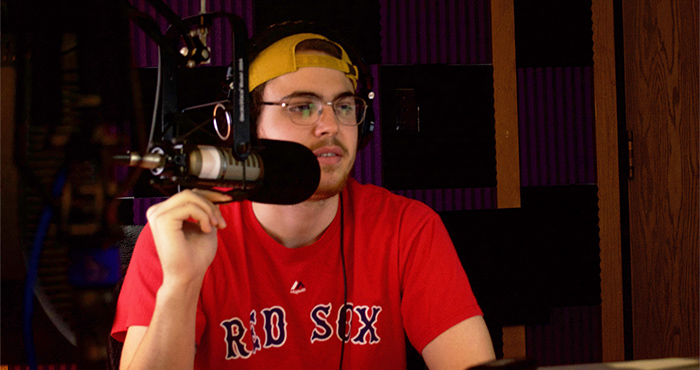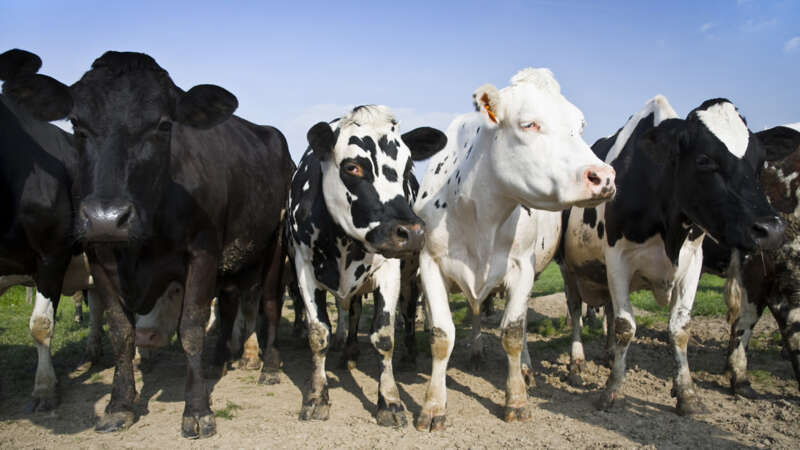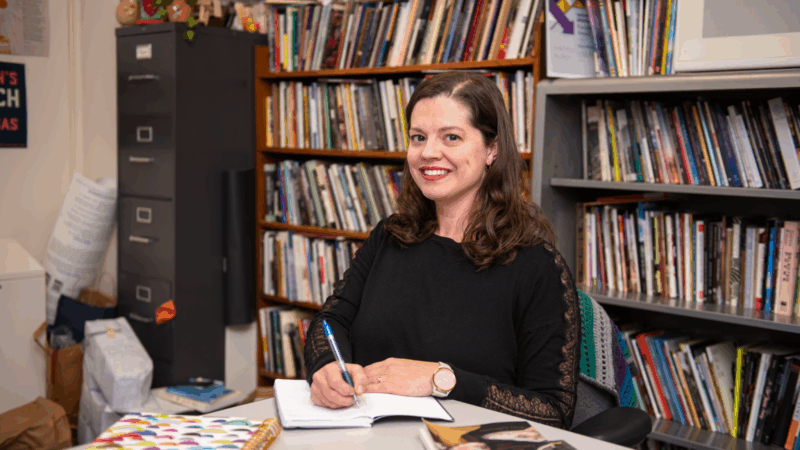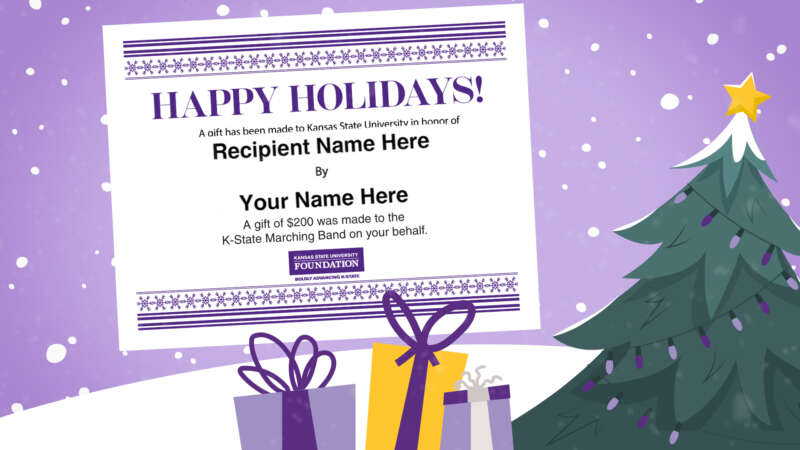How JMC students continue to produce television, radio and Collegian content through COVID-19
Prior to COVID – 19, the A.Q. Miller School of Journalism and Mass Communications was the nucleus of Kansas State University news. From the Collegian newspaper, to KSDB-FM to the MHK All Day television show, everything a person would need to know about the happenings at K-State was produced by the journalism and mass communications students and faculty on campus. However, once the effects of COVID- 19 were felt, the question for the JMC students and faculty was not if they would continue producing content but how.
“It took us about two weeks to figure out the logistics of how to produce content remotely,” said Sara Wallace, student producer of MHK All Day and May graduate. “We tested out many different applications to see what best worked for producing our content until we decided to use Zoom because we can all screenshare. We talked to the technical team at Zoom often, and they were intrigued because they hadn’t heard of anyone using their application for this purpose before.”
Even with her entire team being in different locations around the country and unable to travel, Sara and her team would not let these trying and unexpected challenges get in their way. “We were having story meetings over Zoom every Monday. “ Wallace said. “I would stack the whole show, get everything lined up, as well as make sure we kept everything local. Which was difficult because the reporters were all over the state and country. I was constantly on my phone as we all tried to help one another produce the show.”
The one thing that kept these shows going were the teams behind them, and Wallace wants to be sure to let everyone know how much she values her team. “We as a team all had a commitment, as well as felt a responsibility to get these shows out because we are the only local source that can provide a voice to the impact of COVID-19 on Manhattan,” Wallace said.
The Collegian has also had to navigate the difficulties of producing content during COVID–19. “With the difficulties of COVID-19 we decided to suspend our written publication and put it out as part of our newsletter instead,” said Kaylie McLaughlin, editor-in-chief for the Collegian.” Like their colleagues at MHK All Day, Mclaughlin says that the biggest challenge has been trying to produce content for the Collegian with all her team members living in different places and being unable to meet in person. “We are spread out across the entire state of Kansas and the country trying to do something we are all used to doing together in one room.”
Students at the Collegian have been working on rebuilding the newspaper’s website over the last year, and Mclaughlin says that the skills they developed have helped the transition to an online only format during COVID-19. “I think the fact that we were comfortable with using online tools to build the website made us better suited, as well as more comfortable with the online only format we went to.” In fact, Mclaughlin says that one of their stories during COVID-19 got so much traffic that it crashed the Collegian’s website. “We had such a huge overall spike in our website traffic, one story got so many clicks that it crashed our website for a couple of hours.”
Instead of looking at producing content during COVID-19 as impossible, McLaughlin says that it helped her, as well as her team, become more well-rounded in their journalistic skills. “This experience has helped us as a team answer the tough questions of how do you best serve your audience during a crisis? How can we adapt to these changes quickly? These were all questions we had to answer during this difficult time.”
McLaughlin, like Wallace, wanted to express her gratitude to her team for everything they have done to get the Collegian to the masses. “So many of my team members have taught themselves skills they did not know before,” she said. “We made a 32-page virtual Collegian, and because we don’t have access to our computers, we don’t have access to the software we know. We had to learn new software from scratch, and I’m so impressed with how willing and committed we as a team were to get all of this done.”
KSDB-FM, the oldest continually operating FM station in Kansas, is also navigating the issues of working through COVID–19. However, unlike MHK All Day and the Collegian, KSDB is running daily and on location. Ian Punnett, chief operator and faculty advisor for Wildcat 91.9 wanted to express his sincerest and upmost gratitude to his staff, who have been the personification of dedication as it relates to keeping Manhattan informed during COVID -19. Punnett said, “The staff decided that they were committed to not only to keeping the show live but also expanding the shows hours. The six people on the team, or as I like to call them the essential six, have done the work of 20 people. As a faculty advisor, professor and mentor, you want people who are in the game, people you can count on, and my Essential six are gamers.”
Tom Hallaq, associate professor and faculty advisor for MHK All Day said, “We had an extremely talented group of students this semester. In fact, their very first show of the semester that was produced in the studio was submitted to the Kansas Association of Broadcasters student competition and ended up winning first place. This tells you the kind of talent and dedication this group of students had to their craft.”
Steven Smethers, director of the A.Q. Miller School, also expressed his profound gratitude for the students’ hard work. “We teach our students well about the importance of media in times of crisis. All our students in all our media outlets have really done a great job of covering the COVID–19 story. They understand its importance to people and their respective audiences, and I’m very proud of our students for being able to do that,” Smethers said.
To read the Collegian, as well as watch episodes of MHK All Day visit www.kstatecollegian.com.
By James Dalton Burton






